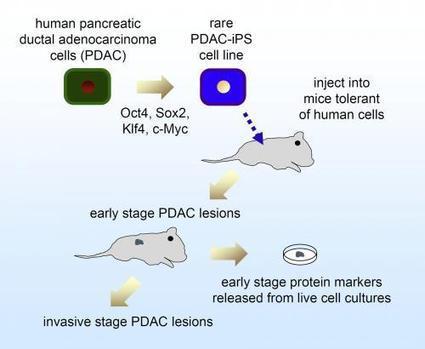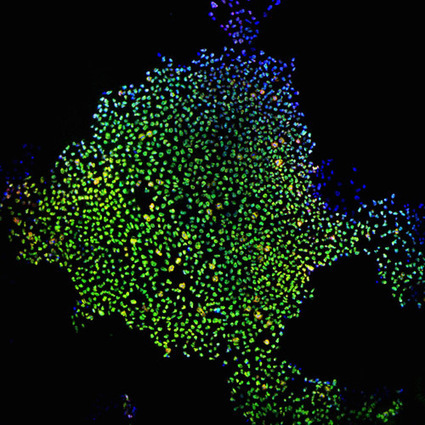University of Pennsylvania scientists have used stem-cell technology to create a research cell line from a patient with advanced pancreatic ductal adenocarcinoma(PDAC).
This first-of-its-kind human-cell model of pancreatic cancer progression was published this week in Cell Reports from the lab of Ken Zaret, PhD, professor of Cell and Developmental Biology.
"It is the first example using induced pluripotent stem [iPS] cells to model cancer progression directly from a solid tumor, and the first human cell line that can model pancreatic cancer progression from early to invasive stages," says Zaret, also the associate director of the Penn Institute for Regenerative Medicine.



 Your new post is loading...
Your new post is loading...









